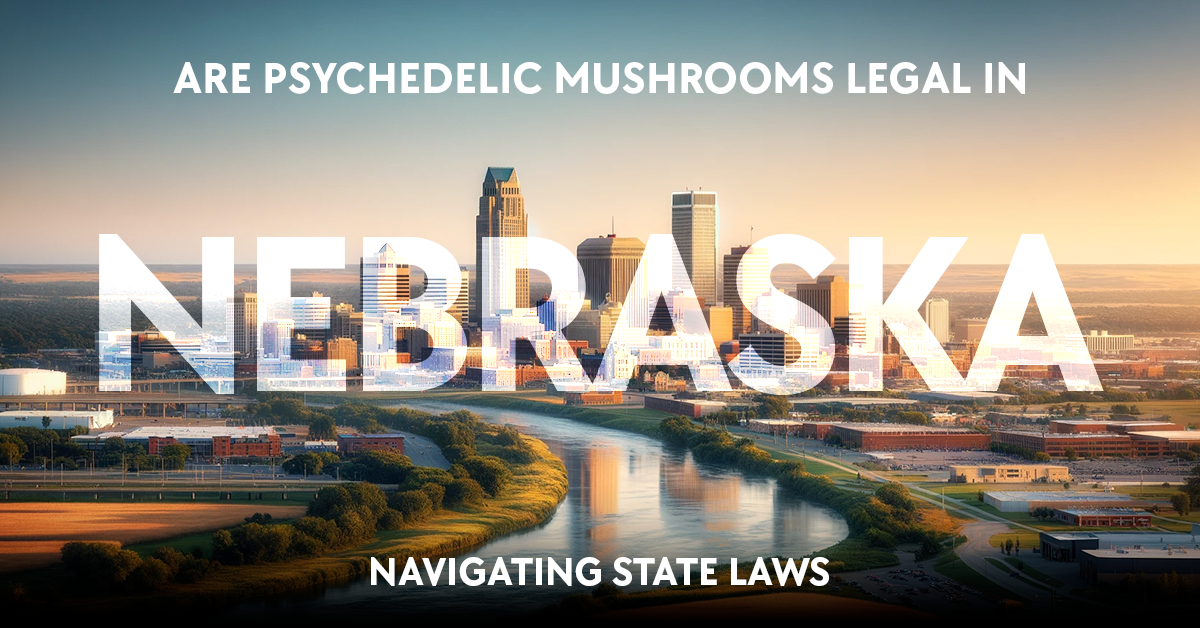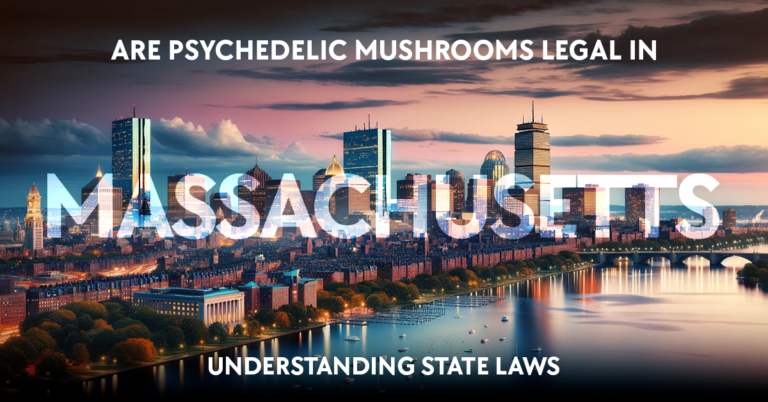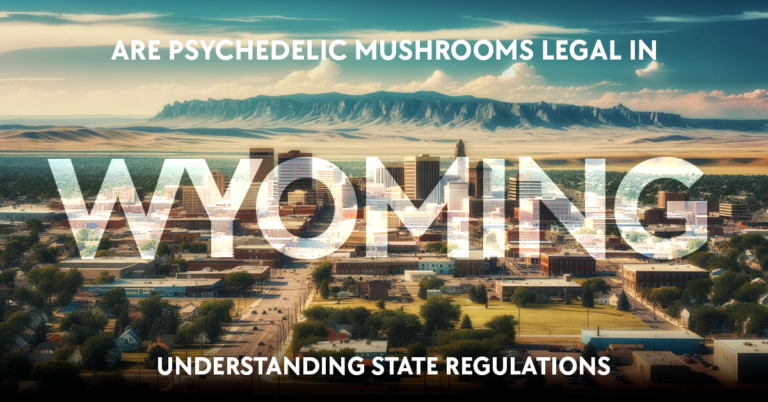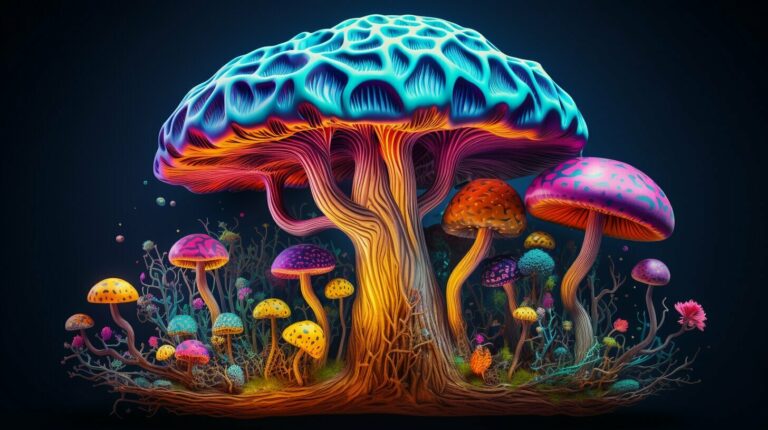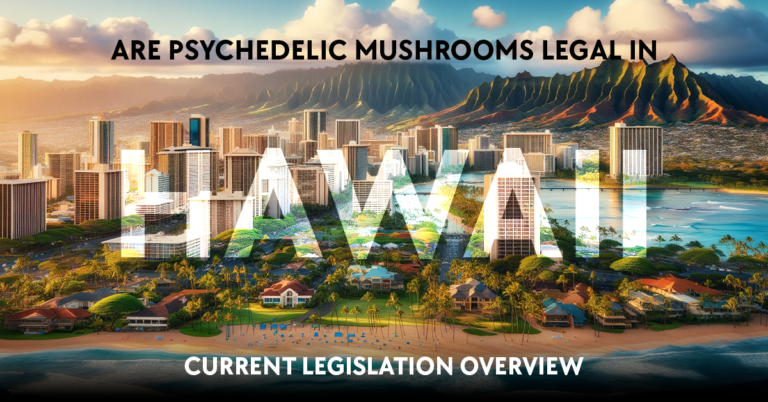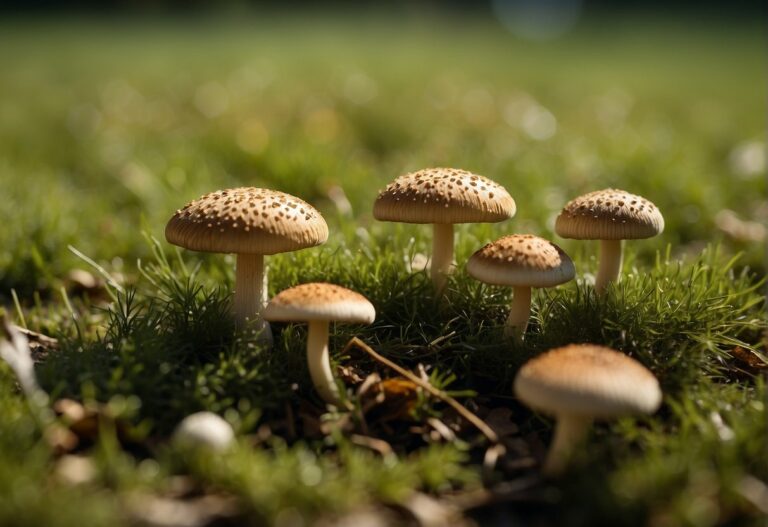When exploring the legal landscape of psychedelic substances such as magic mushrooms, it’s important to recognize that legality can vary significantly from one region to another. In Nebraska, psychedelic mushrooms, which contain the psychoactive compound psilocybin, are currently classified as a Schedule I controlled substance. This classification indicates that they are considered to have a high potential for abuse, no currently accepted medical use in treatment in the United States, and a lack of accepted safety for use under medical supervision.
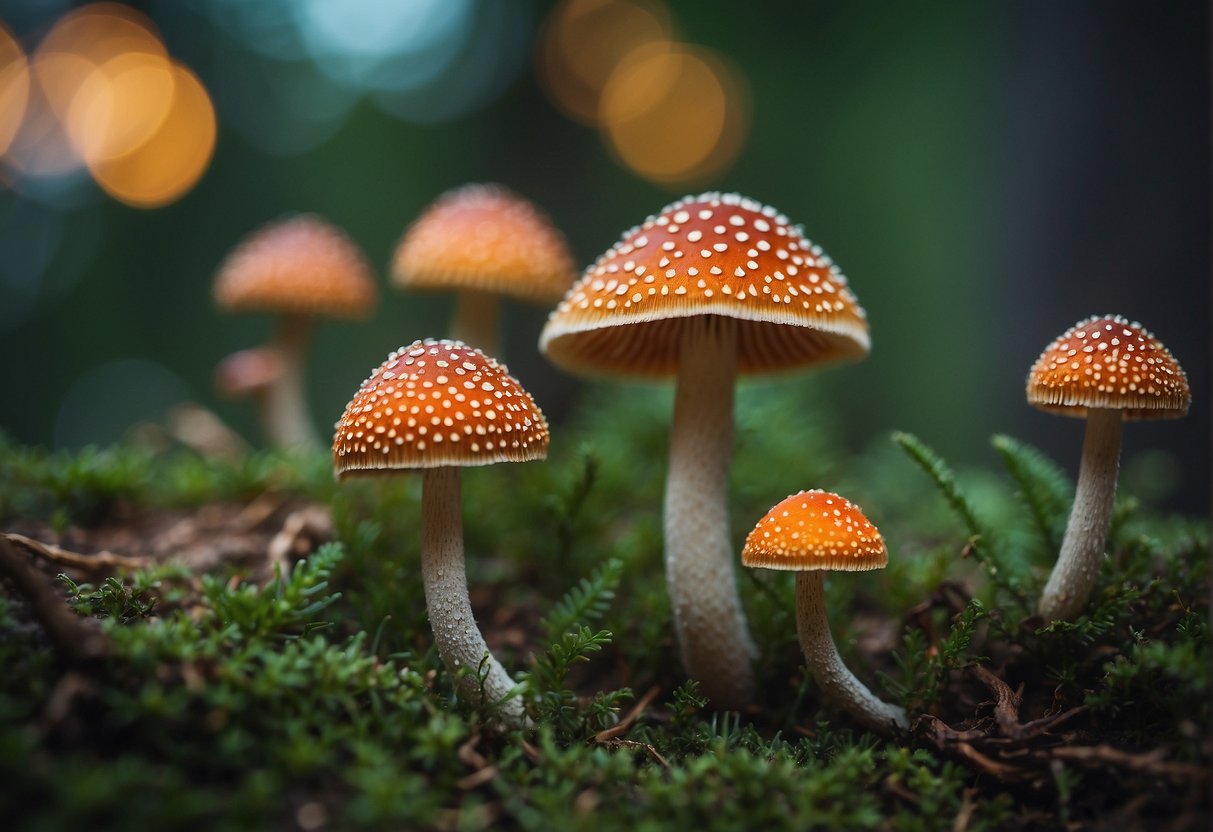
Being in possession of, selling, or using psilocybin mushrooms in Nebraska could lead to serious legal consequences. State law does not differentiate between the use for personal experiences or medicinal applications, although debates on medical research and potential benefits of psychedelics continue to evolve. Your understanding of local laws is essential in navigating the complexities surrounding the use and research of substances like psychedelic mushrooms.
Legality of Psychedelic Mushrooms in Nebraska
Table of Contents
https://www.youtube.com/watch?v=esJWw8a6THc&embed=true
In Nebraska, psilocybin, the psychoactive compound found in psychedelic mushrooms, is classified as a Schedule I drug under the Controlled Substances Act. This classification signifies that psilocybin is considered to have a high potential for abuse, no accepted medical use in treatment in the United States, and a lack of accepted safety for use under medical supervision.
As a result, the possession, sale, or use of psilocybin mushrooms is illegal in Nebraska. If you are found with these substances, you could face significant legal consequences. The criminalization of psilocybin means that any interaction with these substances could lead to penalties, ranging from fines to imprisonment, depending on the quantity and the intent (personal use or distribution).
- Possession: Merely possessing psychedelic mushrooms can result in charges that carry the potential for jail time and fines.
- Sale/Distribution: Selling or distributing psychedelic mushrooms is considered a more serious offense and typically results in more severe penalties.
To date, there has been no movement towards the decriminalization or legalizing of psychedelic mushrooms in Nebraska. Unlike some states that have taken steps to decriminalize or approve psychedelic mushrooms for medical use, Nebraska maintains a firm stance against these substances.
It’s important to remain informed about the state’s laws and the ongoing national conversation concerning potential therapeutic uses of psilocybin. Any legislative changes will be pivotal for the legal status of psychedelic mushrooms in Nebraska. As of now, engaging with psychedelic mushrooms in any manner remains against the law in this state.
Federal Stance on Psychedelics
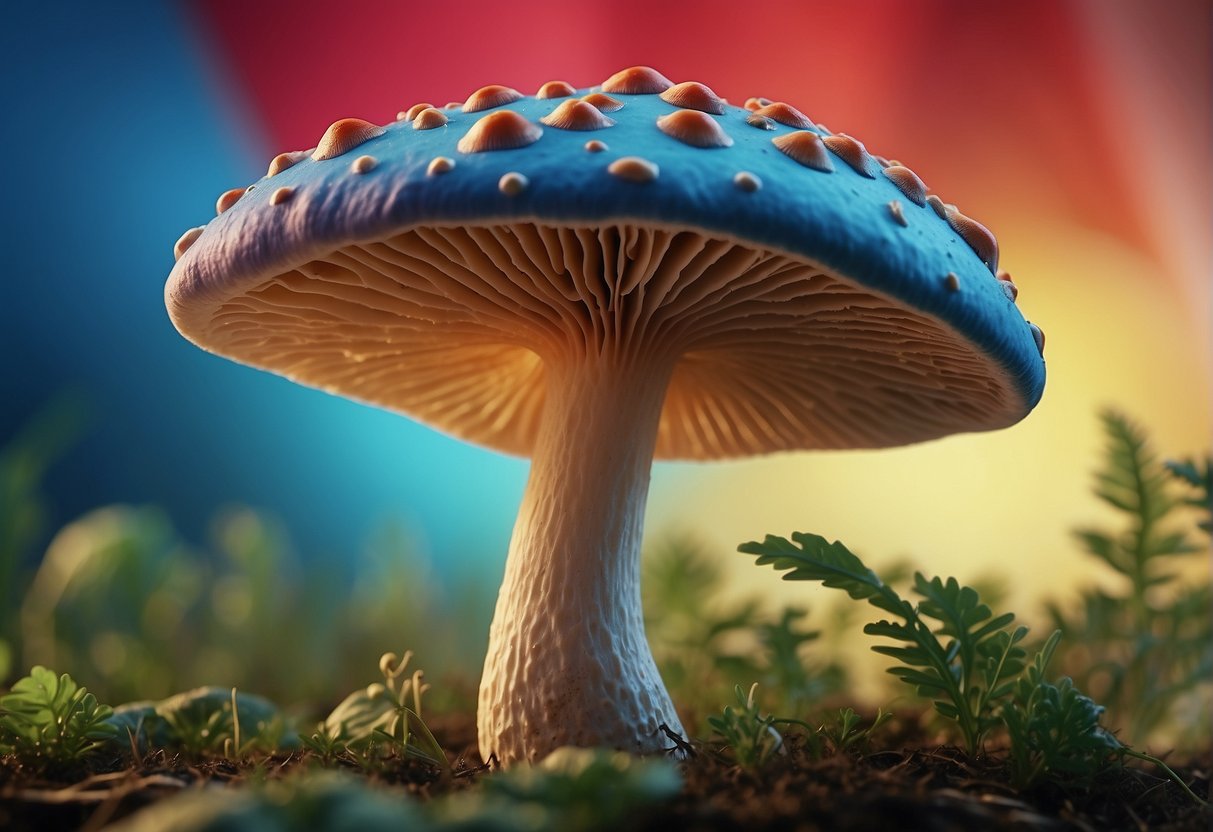
In the United States, psychedelics such as psilocybin, the active compound in “magic mushrooms,” are primarily governed by federal law. The Drug Enforcement Administration (DEA) classifies psilocybin as a Schedule I substance under the Controlled Substances Act. This classification indicates that psychedelics are considered to have a high potential for abuse, no currently accepted medical use in treatment, and a lack of accepted safety under medical supervision.
As a Schedule I drug:
- Psilocybin is illegal to manufacture, buy, possess, or distribute (sell, gift) without a DEA license.
- Research on psilocybin requires extensive approval from various federal bodies, which is often a lengthy and bureaucratic process.
Despite growing research suggesting potential medical benefits of psychedelics, their legal status remains unchanged at the federal level. This federal classification supersedes any state laws; if a substance is classified as Schedule I federally, its legality is not recognized on a state level, even if a state decriminalizes or legalizes the substance for medical or recreational purposes.
Recent Developments:
- Advocacy and research into the therapeutic benefits of psychedelics have been on the rise.
- A few jurisdictions have started to shift their stance on psilocybin, calling for decriminalization or medical usage, but these do not alter the federal legal restrictions.
Your Legal Context:
As you navigate your own understanding of psychedelic legality, remember that federal law holds precedence, and despite any state-level movements, psilocybin remains illegal under federal law in the United States.
The Role of Local Policies and Movements
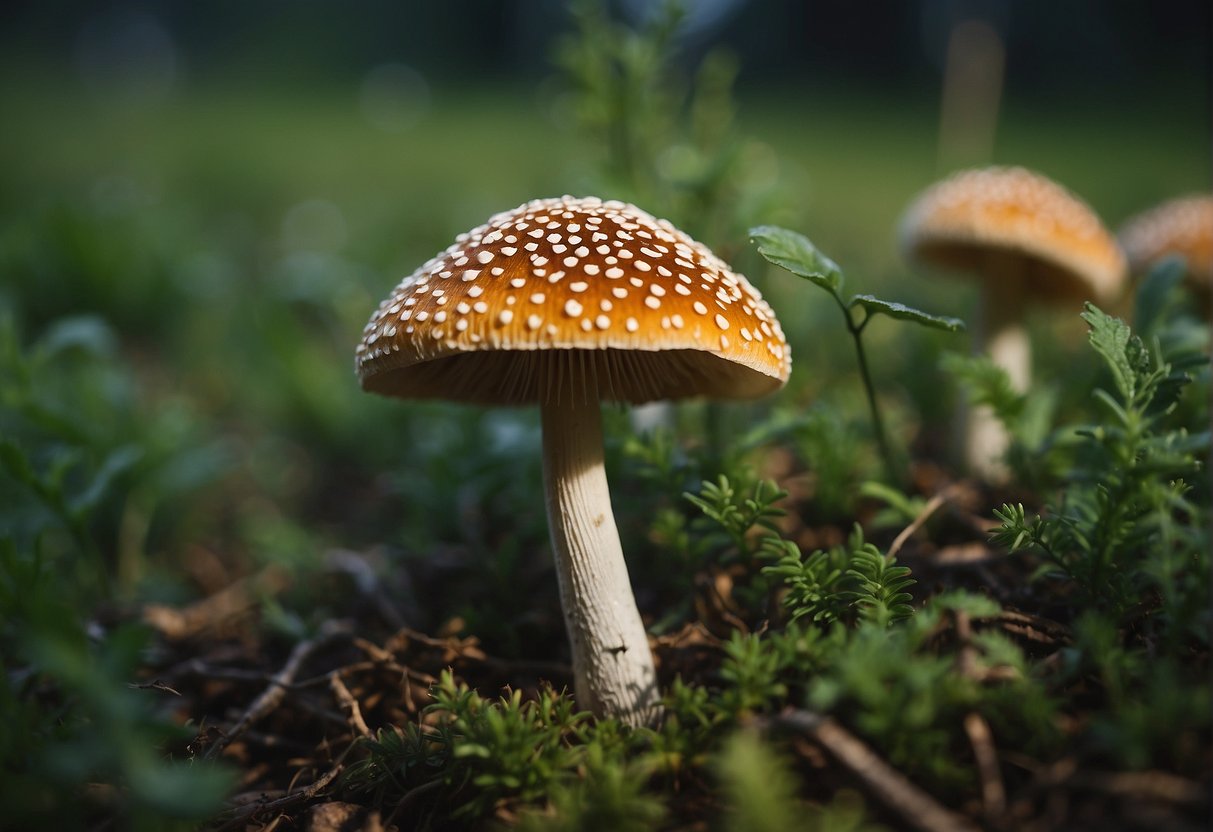
Local policies and movements have a significant impact on the legal status of psychedelic mushrooms, often known as psilocybin mushrooms. In Nebraska, psilocybin remains illegal, with current laws classifying it alongside other controlled substances. Possession, sale, or use can result in legal penalties. Despite this, there are movements across various states pushing for decriminalization.
Oregon and Colorado have taken notable steps in altering their legal stance on psychedelic substances. Oregon became the first state to decriminalize the possession of small amounts of psychedelic mushrooms and is developing a framework for therapeutic use. Similarly, in Denver, Colorado, there were movements that led to the decriminalization of personal use and possession of psilocybin mushrooms. California and the District of Columbia have also seen efforts to change the local policies regarding these substances, with initiatives to reduce penalties for possession and use.
Here’s an overview of local movements in some regions:
| State/City | Status of Psilocybin Mushrooms |
|---|---|
| Oregon | Decriminalized and approved for therapy |
| Colorado (Denver) | Decriminalized for personal use |
| California | Active decriminalization efforts |
| District of Columbia | Decriminalized through Initiative 81 |
| Nebraska | Illegal – no decriminalization movement |
If you’re interested in the push for legal changes, it’s important to engage with and support local organizations advocating for reform. These groups emphasize harm reduction, therapeutic potential, and individual cognitive liberty. As more jurisdictions explore decriminalization, your awareness and participation in local politics can influence the future legal landscape concerning psychedelic mushrooms.
Medical and Therapeutic Use of Psychedelics
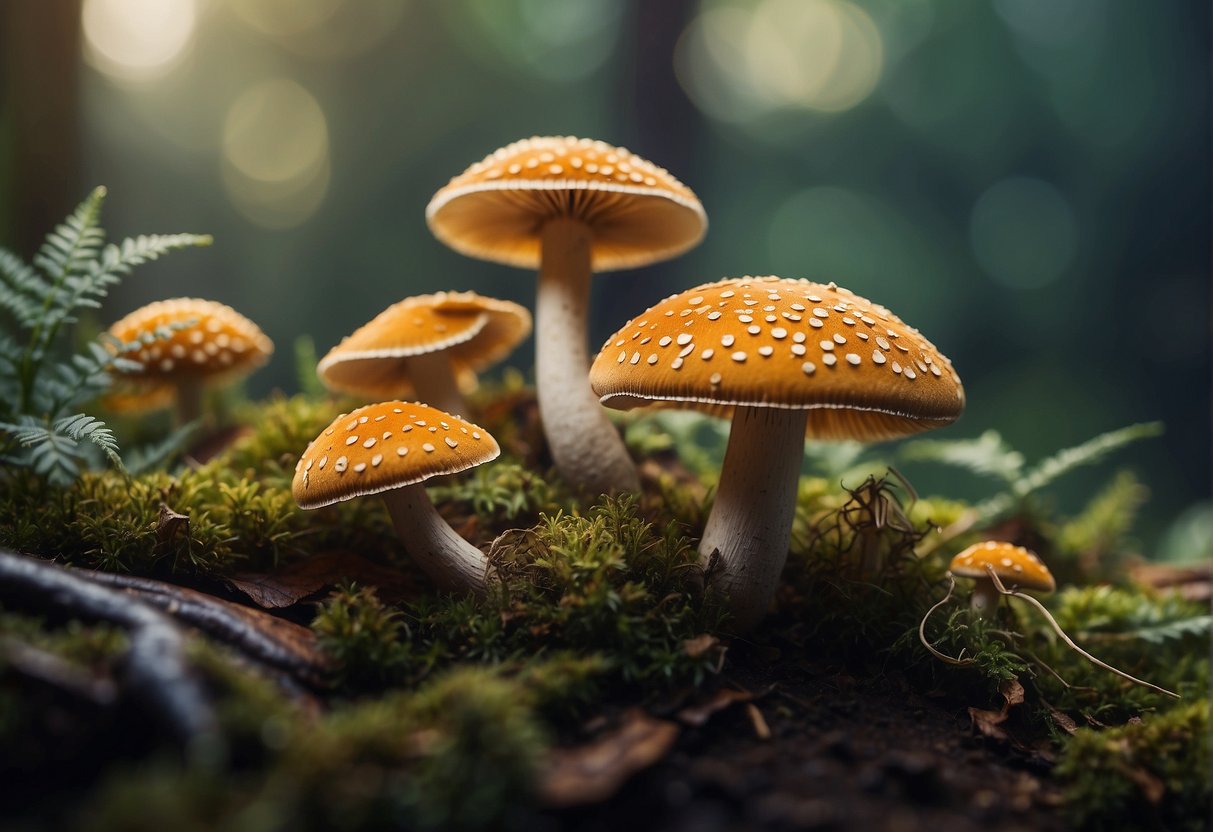
In recent years, your understanding of psychedelics, particularly psilocybin mushrooms, has evolved, thanks especially to their potential in treating various mental health issues. These substances are being studied for their therapeutic benefits in a medical context.
Current Research and Findings
Research into psilocybin mushrooms has accelerated, with studies pointing to significant benefits in therapy settings. For instance, when used in controlled, therapeutic environments, psilocybin has been associated with reducing symptoms in conditions such as depression, anxiety, PTSD, and addiction. Findings suggest that psilocybin facilitates a unique psychological response that can catalyze profound emotional and cognitive insights during therapy sessions.
Implications for Mental Health Treatments
The implications for mental health treatments are substantial. Medicinal use of psilocybin mushrooms could revolutionize your current approach to therapy. For individuals coping with treatment-resistant depression or PTSD, psilocybin offers a promising auxiliary treatment avenue. Moreover, research underscores the potential for these psychedelics to create lasting change in neurological patterns, suggesting long-term benefits for patients who have struggled with chronic mental health issues.
Psychedelics for Personal Use
When assessing the legality of psychedelic substances for personal use in Nebraska, it is critical to understand that legislation often categorizes drugs like LSD, ketamine, DMT, and ayahuasca alongside magic mushrooms due to their psychedelic properties. In Nebraska, the personal use and possession of these substances currently fall under illicit activity.
- Use and Possession: It’s illegal. If you have or use psychedelics, you’re in violation of state law.
- Microdosing: There’s a growing interest in microdosing psychedelics, which involves taking sub-perceptual doses of substances like psilocybin — the active ingredient in magic mushrooms — for potential mental health benefits. Despite anecdotal accounts of microdosing’s positive effects, this practice remains unlawful in Nebraska.
Interest in psychedelics has grown due to their therapeutic potential, especially for conditions like alcohol addiction. However, regardless of their potential medical benefits, recreational use is not permitted.
Here’s a simple breakdown of Nebraska’s stance:
| Substance | Personal Use | Possession | Microdosing | Recreational Use |
|---|---|---|---|---|
| Magic Mushrooms | Illegal | Illegal | Illegal | Illegal |
| LSD | Illegal | Illegal | Illegal | Illegal |
| Ketamine | Illegal | Illegal | Illegal | Illegal |
| DMT/Ayahuasca | Illegal | Illegal | Illegal | Illegal |
While some states have moved towards decriminalization or even legalization for medical use of certain psychedelics, Nebraska maintains strict regulations against these substances for non-medical purposes. For the most current information, always check Nebraska’s state laws, as the legal landscape can change.
State-By-State Legal Variations
When you’re navigating the complex landscape of psychedelic substance legality, it’s vital to understand that laws can vary significantly from state to state. This is particularly true for psilocybin, commonly known as magic mushrooms.
Oregon is currently the trailblazer in psilocybin reform; as of 2020, it became the first state to legalize the supervised use of psilocybin for therapeutic purposes. Similarly, Colorado made strides by decriminalizing the possession and personal use of psilocybin mushrooms as of 2022.
While not legal for recreational use, some cities have taken steps towards decriminalization. In California, cities like Oakland and Santa Cruz have decriminalized the use and possession of psilocybin mushrooms. Further east, Denver, Colorado has also decriminalized psilocybin possession.
Several other states are exploring changes. For example, New York and Massachusetts have introduced bills proposing the decriminalization of psilocybin, signaling a potential shift in their legal stance on the matter. These moves indicate that there’s a growing interest in reevaluating the legal status of psilocybin across the country.
However, in states like Iowa, Missouri, Minnesota, New Mexico, and Vermont, psilocybin remains illegal under both state and federal law, with no current legislative momentum suggesting imminent changes.
As for Nebraska, psychedelic mushrooms are still illegal and classified as a controlled substance. Possession, sale, or use of psilocybin mushrooms carries penalties under state law.
To stay informed about the legality of psilocybin in your state, it’s imperative to check the most current state laws, as legislative landscapes are changing rapidly concerning psychedelic substances.
Potential Future Legal Changes
If you’re following the evolving legal landscape of psychedelic mushrooms, it’s important to be aware of potential changes that could occur. As current laws stand, psychedelic mushrooms are classified as a Schedule I drug at the federal level, indicating no accepted medicinal use and a high potential for abuse. However, there is an ongoing discourse on the potential medicinal uses of psychedelics, which could influence future legislation.
In the context of Nebraska, the state strictly adheres to federal guidelines, meaning psychedelic mushrooms remain illegal. However, you should consider the trend of decriminalization and legalization that’s gaining momentum in other states for both medicinal and recreational use. This includes efforts to reclassify psychedelics for therapeutic purposes, a movement that could prompt legislators in Nebraska to revisit state drug policies.
Common legislative paths that other states have taken and may suggest future possibilities for Nebraska include:
- Decriminalization: emphasizes not prosecuting possession of small amounts for personal use.
- Medical Research Programs: allowing the study of psychedelics for potential therapeutic benefits.
- Medicinal Legalization: permits use under a doctor’s supervision.
While currently, no proposals are active in Nebraska for decriminalizing or legalizing psychedelic mushrooms, the state’s legal framework might be influenced by:
- Federal reclassification of psychedelics
- Changes in public opinion
- Scientific research outcomes
- Legislative shifts in nearby states
You should stay informed on these matters, as the potential for legal reform is ever-present in a rapidly developing socio-political climate.
International Perspectives on Psychedelics
In navigating the global landscape of psychedelic substances, you’ll observe a patchwork of legal frameworks across different countries, especially concerning substances like psilocybin—the compound found in “magic mushrooms”. Europe presents a diverse picture with laws varying greatly from one nation to another.
Netherlands: You may be intrigued to know that the sale of truffles, which contain psilocybin, is allowed in the Netherlands, distinguishing it from many other European countries.
In Germany, possession of psilocybin mushrooms is illegal, yet personal use isn’t a focus of law enforcement, indicating a nuanced approach towards drug policies here.
Turning towards Portugal, you’ll find a unique situation where all drugs have been decriminalized for personal use since 2001, although the production and distribution remain illegal.
The Czech Republic is another example where possession of small amounts of psychedelics for personal use is decriminalized. This means you won’t face criminal charges for holding a quantity meant strictly for personal use.
When it comes to legalized therapeutic uses, certain countries are making strides. For instance, Spain has decriminalized personal use and cultivation of mushrooms, albeit within a private and closed space.
Moreover, within Canada, recent regulatory changes have granted some exemptions allowing for the use of psilocybin for therapeutic purposes under strict conditions.
Decriminalization and research into therapeutic potentials are signs of a shifting paradigm, where you might observe the emergence of a more reasoned, health-focused approach to psychedelics internationally. Keep in mind though, the legal landscape is complex and often subject to change.
Frequently Asked Questions
In this section, you’ll find specific information about the legalities surrounding psilocybin mushrooms in Nebraska, including current laws, exceptions, recent legislative activity, and the associated penalties.
What is the legal status of psilocybin mushrooms in Nebraska?
Psilocybin mushrooms remain illegal in Nebraska and are considered a controlled substance. Possession, sale, or use of these substances is prohibited by law.
Can individuals possess or cultivate psilocybin mushrooms without violating Nebraska state laws?
No, individuals cannot legally possess or cultivate psilocybin mushrooms in Nebraska. Doing so is in violation of state law.
Are there any exceptions to Nebraska’s laws regarding psychedelic mushrooms for medical or religious use?
As of the current date, Nebraska does not provide any exceptions for the use of psychedelic mushrooms for medical or religious purposes. These substances remain categorized as Schedule I controlled substances.
Has there been any recent legislation in Nebraska addressing the decriminalization or legalization of psilocybin?
There have not been successful legislative changes in Nebraska regarding the decriminalization or legalization of psilocybin mushrooms; these substances remain illegal.
What are the potential penalties for possession, sale, or distribution of psychedelic mushrooms in Nebraska?
The penalties for possession, sale, or distribution of psychedelic mushrooms in Nebraska are severe and can include heavy fines and imprisonment, with the exact penalty varying based on quantity and intent.
How does Nebraska law classify psilocybin mushrooms in terms of controlled substances?
Under Nebraska law, psilocybin mushrooms are classified as Schedule I controlled substances, which indicates that they are considered to have a high potential for abuse and no accepted medical use.

